
Why We Bought a Used Motorhome
The spring of 2016 proved interesting for my husband and I. Jeremy was down with pneumonia and I was on the brink of a work-induced anxiety attack. We made quite the pair.
One particular evening during this time, we sat down to watch a documentary about tiny homes. We started having conversations about the future -- what it looked like, what we wanted to do.
But while the film played, something else started moving within us. We both felt it. Whether it was to be a tiny home or a tent, we wanted to live under our own rules wherever we pleased.
By the spring of 2017, we were married and moving into the next phase of our lives together. We had solidified plans to travel abroad for a couple months, we'd sold most of our things and left our apartment in Austin, TX, in the dust. But we had no idea where we were going to live once we were stateside again.
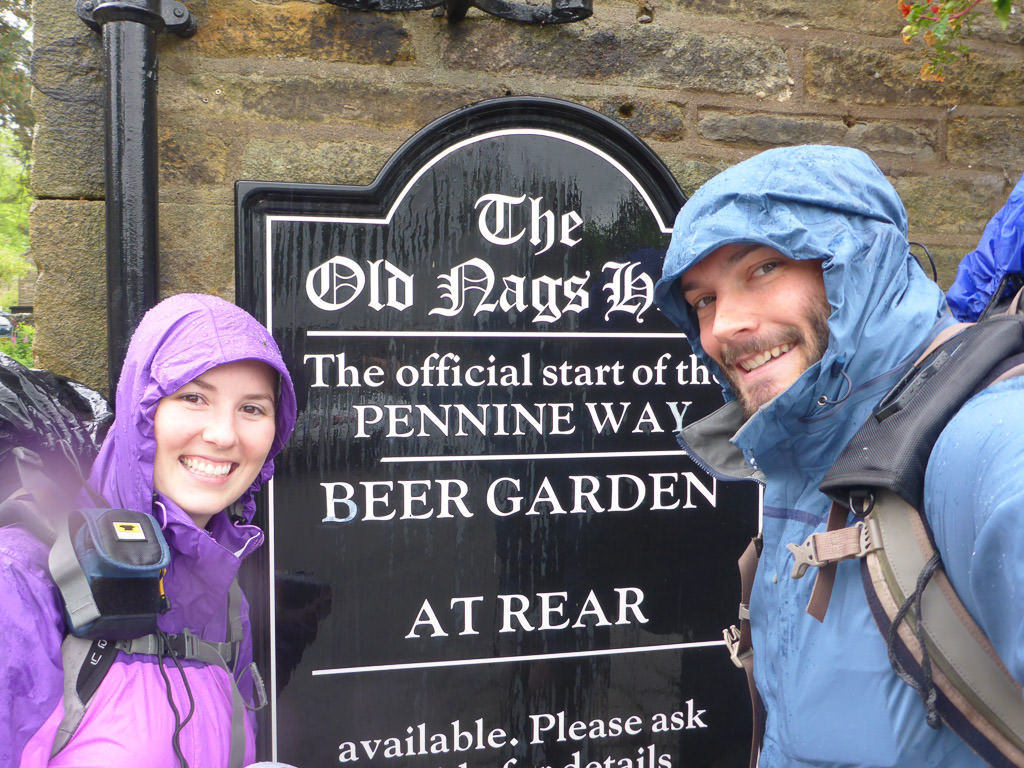 The Old Nag's Head: The official start to the Pennine Way, Edale, UK.
The Old Nag's Head: The official start to the Pennine Way, Edale, UK.
It wasn't until we joined a community of like-minded individuals at the RV Entrepreneur summit, pretty much on a whim, that we knew we were going to live in an RV. So after our two-month journey abroad, we started looking at RVs to buy.
Why Did We Choose a Class C RV?
During our research, we went back and forth about which type of RV we wanted.
"I think a trailer makes more sense. I don't want to be stranded on the side of the road if our Class A, B or C breaks down. I don't think I could handle that."
This was a constant sentiment of ours while we debated the types. We loved the space a Class A offered, but we also liked the idea of better gas mileage and the ability to stop and make a sandwich like the Class C offered.
We talked about this for months.
It finally came down to what we were willing to spend. While a trailer safeguarded the chance of not being stranded, it also meant we'd have to sell both our cars and buy a truck to pull the trailer. Hm.
So our budget of $40,000 at the time went up to about $60,000 in an instant. Yikes. That was not the plan. The plan was to save money, and that option simply wasn't going to cut it for us financially.
After talking more about our options once the trailer was out, we agreed on a Class C -- which eventually led us to Melvin, a used 2001 Class C Winnebago Minnie.
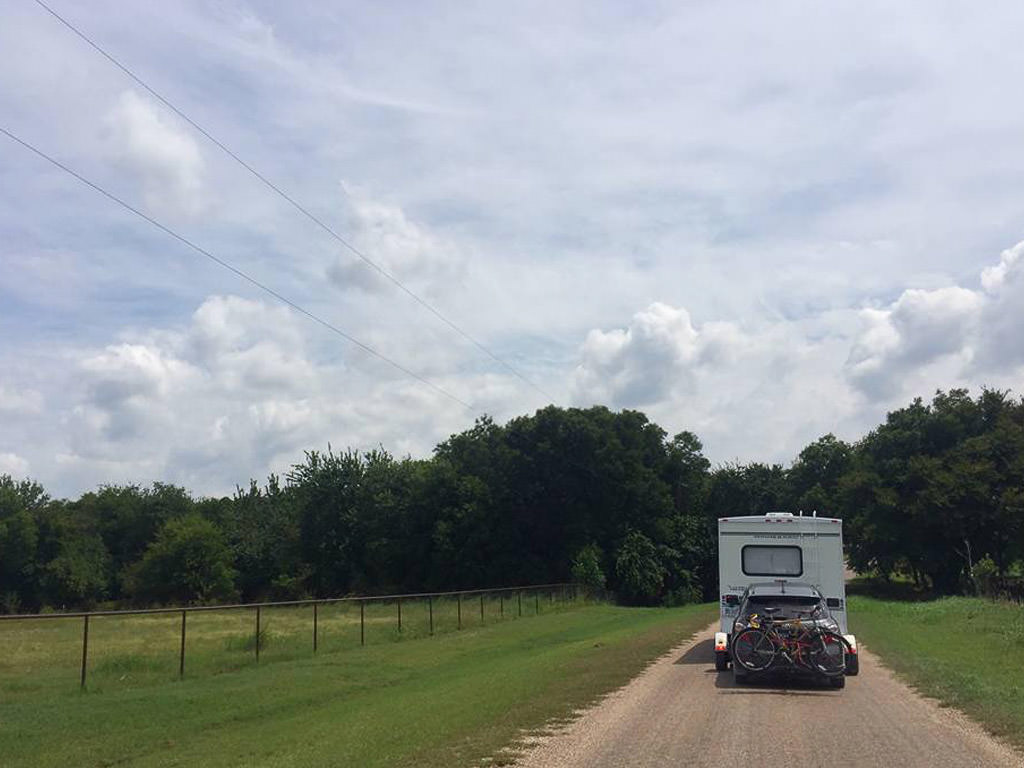 Officially leaving Texas for Oregon.
Officially leaving Texas for Oregon.
Challenges of Buying a Used RV
The key to buying a used RV is to find one that works well for you, has minimal damage, and doesn't break the bank. This proved to be much more difficult than we imagined.
And while I can say we started looking for RVs after our trip, that's not the whole truth. We started looking seriously at RVs to buy after the trip, but I looked a good six months before we left.
Six months. And nothing.
A couple rigs piqued our interest along the way, but nothing panned out. We were partly hoping to find our home before we left the states. That would have made it so much easier to travel without worrying about getting home just to find a home. But of course, we didn't.
One of the RVs we looked at before we left was almost a done deal. We met the guy, looked around, took it for a test drive and thought it was good enough. As with most great Craigslist stories, the seller ended up being super shady about the whole thing. While we sat waiting in a Ross parking lot, he was making a sale to someone else he had spoken with the day before.
I know that sounds sad. Waiting in a Ross parking lot for a potential RV seller, but that's where we were and that was part of this long journey. It wasn't heartbreaking to leave without an RV that day. It was heartbreaking because we were tired and wanted to find our new home.
Shortly after returning from our trip, we found Melvin and are happy with our choice. Our main concern was simply, will this get us to where we need to go safely? And he could. However, we did have to compromise with our final purchase.
My dream pick was a Winnebago, so it felt like fate that Melvin magically appeared online one day. He only had two owners in the past, as far as the dealer knew, and he was kept under cover for most of the time, so his exterior paint was darn near perfect. He looked good.
We knew of some water damage in the over-the-cab and back part of the rig on the driver's side, but he was in remarkable shape in other ways. The floors were not scuffed, the carpet was almost spotless, the cabinetry was in great shape, the generator ran well, four of the six tires were pretty new, and his slide worked flawlessly.
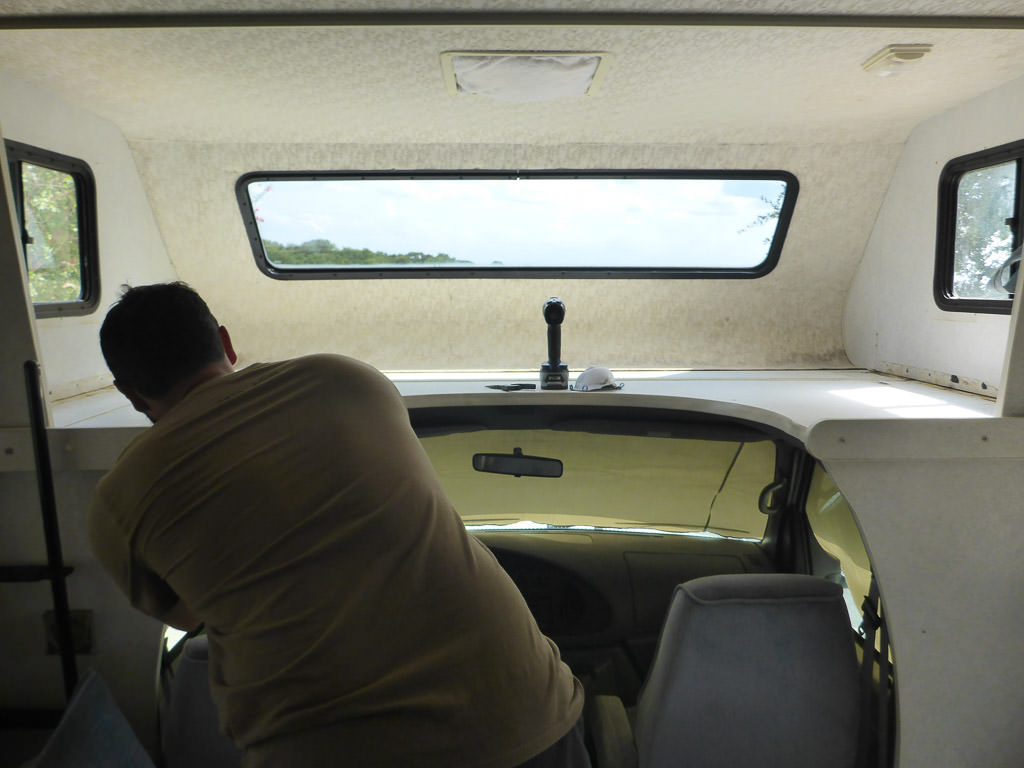
When it was time for repairs, were they all easy to complete? No. To be honest, we ended up hiring someone to repair the over-the-cab damage because we just didn't have the time to do it ourselves.
It's important to remember that while you save money, buying used means that you are also buying the rig's "baggage." Melvin will need work even after we're seemingly finished working on him. He's 16, so he gets a break, but I really can't think of a better way to learn how to take care of our rig and learn new skills that we can use down the road.
Benefits to Buying a Used Motorhome
Gaining Financial Peace
Everyone has different motivations for living on the road full time, but saving money and paying off debt is one of our top priorities.
Jeremy served in the Air Force, so his education was paid for via the GI Bill. While we are extremely grateful we only have one education to pay for, we still have mine to pay off.
When we got married, my student loans stood at a conservative $16,000. I paid for the first two years out of pocket, but this number was still hard to swallow.
Newly married, it worried me. And we've already made a commitment to not have kids until it is paid off, so there is more at stake for us than having a little bit of debt.
Living in a consumer society, we desire to be fiscally responsible with what we are given and what we have in the future. And yes, this includes our children.
A used rig made the most sense for us, so we set a $30,000 budget. With that amount, we were able to buy our rig and tow dolly, paint the walls and other smaller elements, and repair aesthetic problems in the RV without going over budget.
Yes, we will be paying off my loans and the RV simultaneously for a little while, but when your rent is half of what you paid prior, that task doesn't seem so insurmountable. Plus, in the end, we'll own our home.
Figuring Out What We Want for the Future
As newlyweds, buying a home just to pay it off for many years to come did not sound appealing. Not only that, but we don't like to stay still for too long. When you can't stomach the idea of renting an apartment for an indefinite amount of time, you need another option.
We didn't know what we wanted to do.
Living in an RV gives us the flexibility to visit other places of interest and decide where we could possibly end up. Renting apartments in every place we visit simply isn't feasible for us. This way, we can take our home wherever we go.
Freedom to Make It Our Home
When you rent a home or apartment, there are normally rules against painting and personalizing the space. When you buy an RV, you have the freedom to make it look and feel how you want. And when you buy a used RV, there is less pressure to keep things as the factory made them.
Our used motorhome allows us the opportunity to paint, organize, and design our home as we please. He's old enough to need a small makeover, but the design of the rig is so well done that most of what we've worked on is purely aesthetic.
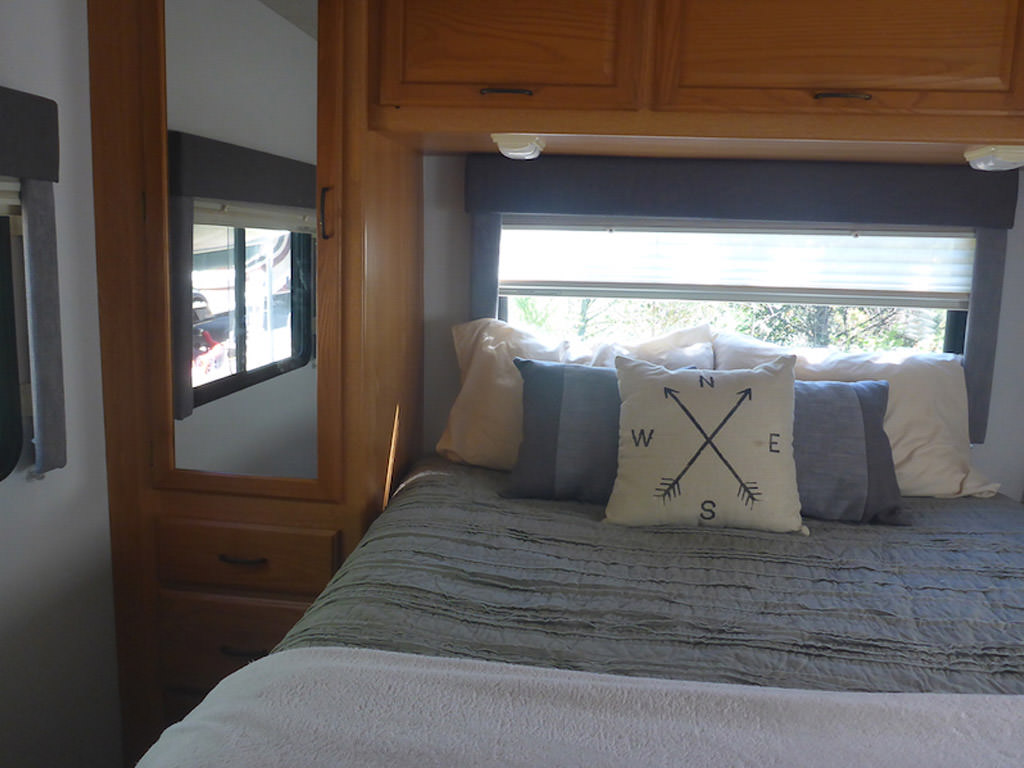 Our new and improved bedroom.
Our new and improved bedroom.
So far, we've painted the walls, reupholstered the window valences and dinette, painted most of the handles, replaced the wood in the over cab, and put our personal items on the walls.
It did not take long for Melvin to feel like our home.
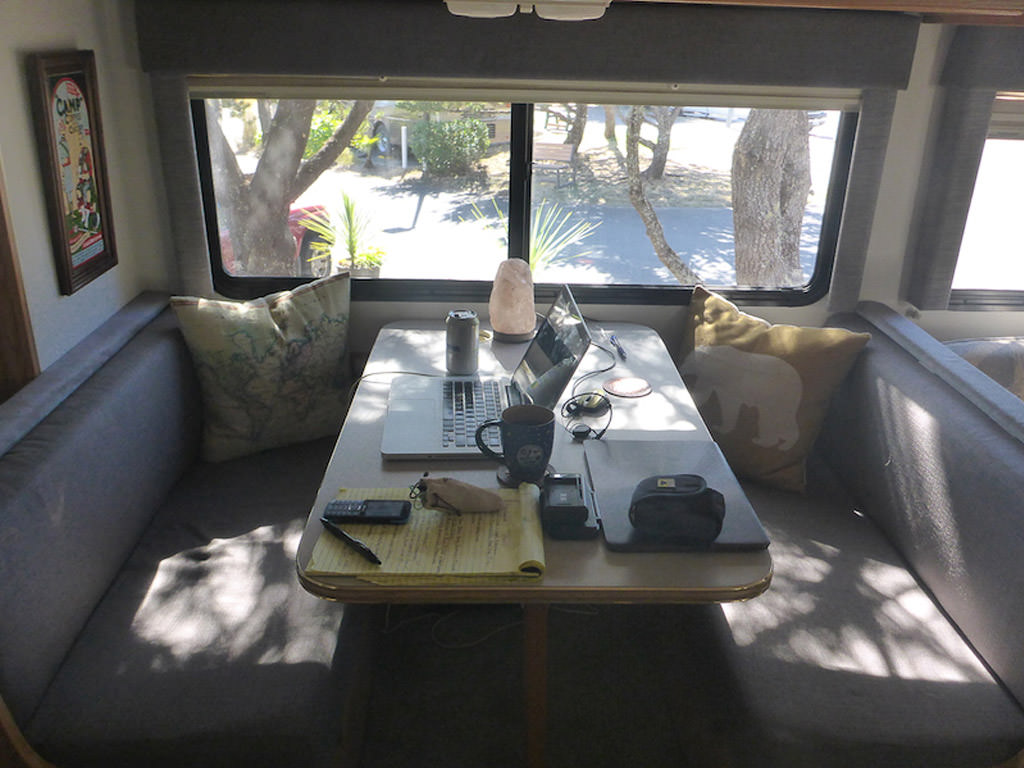 What my office space normally looks like, but notice the window and dinette seats!
What my office space normally looks like, but notice the window and dinette seats!
Figuring Out Our Next Rig
We see the next few years in Melvin as an opportunity to shop around for what we want in our next rig.
That sounds counter intuitive, right? Well, we haven't had any experience living in an RV, so we want to use this time as a learning platform for the future.
We ask ourselves questions like: Is this enough space for us? Is this too much space for us? Do our lives fit the design? Is it easy to park and move?
Everyone has different needs and ways of moving in their spaces, and an RV is no different, especially when it's your home.
Comments
Comments on this post are moderated, so they will not appear instantly. All relevant questions and helpful notes are welcome! If you have a service inquiry or question related to your RV, please reach out to the customer care team directly using the phone numbers or contact form on this page .